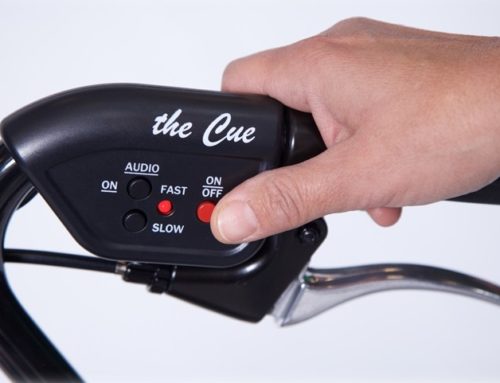One effect of Parkinson’s disease that many people are unaware of is the occurrence of freezing episodes. These episodes can literally stop a person with Parkinson’s in their tracks, but we offer a laser cane that has been proven to help individuals in this situation.
Freezing episodes happen when the person feels like their foot is stuck to the ground, and they are not able to lift it in order to take the next step.
The struggle is real
Many caregivers do not know how to handle this situation, because their instinct is often to tell the patient simply to keep moving, not realizing that it’s not as easy as it looks. Freezing episodes are real and are not simply a matter of the will.
Furthermore, caregivers might want to encourage the patient to take it easy and walk slowly, but this is usually not the ideal advice to give. In fact, walking slowly often makes freezing episodes worse. Health professionals suggest that either speeding up or walking in a regularly paced, marching gait can help to prevent freezing.
Visual cues can prevent freezing
To help achieve these walking strategies, use of a laser guide has been shown to be very effective. “How does this work?” you might ask.
The answer: Using a cane that displays a horizontal laser beam line crossing directly in front of the users path. Providing this visual cue helps the person with Parkinson’s disease overcome freezing and take that next step.
The In Step LaserCane
This is achieved through the In Step LaserCane, which is one of the only canes on the market that projects a red line onto the floor, providing a goal for the user to walk toward. It only requires two AA batteries to power the laser function.
The In Step LaserCane is useful especially for people with Parkinson’s, but can also help rehabilitate stroke recovery patients and assist people with ALS, abnormal gait and similar issues.
Don’t let Parkinson’s disease hold you back. Walking independence can be achieved just like other things in life — one step at a time!
© Copyright 2016 The Wright Stuff, Inc. Articles may only be redistributed in its unedited form. Written permission from The Wright Stuff, Inc. must be obtained to reprint or cite the information contained within this article.





